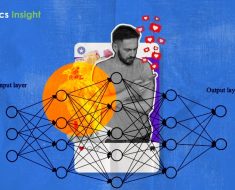In recent years, material science has emerged as an interdisciplinary powerhouse, central to advancements across diverse industries. Leveraging the combined forces of physics, chemistry, and engineering, this field has traditionally relied on iterative, hands-on experimentation to develop materials that meet precise specifications for strength, durability, and other key properties. However, material development’s slow pace, coupled with the complexity of predicting material behavior, has posed significant challenges, ranging from high costs and environmental impact to difficulties in maintaining consistency during upscaling.
These obstacles, however, are being rapidly dismantled by the incorporation of computational tools, advanced modeling techniques, and the burgeoning realm of artificial intelligence (AI) and machine learning (ML). This technological evolution is supercharging the material discovery process, allowing researchers to explore and simulate an expansive universe of materials, including those that surpass the bounds of nature. As a result, groundbreaking materials such as superconductors, biomaterials, and nanomaterials are coming to light more swiftly and efficiently, reshaping industries and fueling innovation.
AI and ML Influence in Manufacturing
The influence of AI and ML in material science extends well into the manufacturing sector, where automation and robotics transcend traditional limitations by producing materials with unprecedented precision and volume. This forward leap in manufacturing fosters a fertile ground for product enhancement and novel design potential.
Specifically, the roles of machine learning operations (MLOps), large language models (LLMs), and generative AI are proving to be game-changers in multiple industry segments:
Consumer Packaged Goods (CPG)
Smart packaging solutions are evolving as ML algorithms scrutinize vast consumer datasets, with MLOps orchestrating these algorithms’ deployment and continual refinement, and LLMs digesting consumer feedback to drive sustainable, attractive packaging innovations.
Automotive Industry
Vehicle makers are prioritizing the development of lightweight materials to boost fuel efficiency and curb emissions. ML models are instrumental in discovering and evaluating these materials, while MLOps streamline their model management, and LLMs’ insights into patents and trends cement smarter decisions in material innovation.
Oil and Gas Sector
Equipment longevity is non-negotiable in extreme operational settings. ML’s prowess in pre-empting equipment failures promotes material enhancements for increased durability, with MLOps ensuring the deployment of these predictive models, and LLMs synthesizing specialized research to inform robust equipment design.
Energy Sector
With the globe pivoting towards renewable resources, ML facilitates the creation of materials that amplify the efficiency of solar panels, wind turbines, and energy storage systems. The stewardship of MLOps is crucial in adjusting these ML models to shifting technologies and market needs, while LLMs infuse new insights into renewable material applications, charting the course for next-gen energy technologies.
Machine Learning and Generative AI Ensure Sustainable Future
For enterprises venturing into this synergetic integration of AI tools within material science, the path to success is marked by several key strategies: foundational education in ML and LLMs, fostering cross-disciplinary collaborations, initiating modest pilot projects, ensuring robust data management, and adhering to AI ethics to maintain scientific integrity.
Indeed, this transformative journey is not merely about keeping pace with technological currents. It is an embrace of a smarter and greener industrial epoch. As we progress, the alliance between material scientists, data experts, and technology partners will be crucial in unlocking a sustainable and innovative future. The Forbes Technology Council acknowledges the imperative to welcome these technologies for companies to remain competitive and environmentally attuned in an ever-changing business landscape.





